
views
Figuring Out Who to Tell and When

Take a little time if you need it. There’s no rule that says you must break the news to everyone in your family as soon as you have a diagnosis. You’re probably experiencing a lot of different emotions, and taking some time to process those feelings and figure out what your next steps are before sharing the news is completely fine. Just focus on what feels right. Processing emotions is a personal thing, and different things work for different people, but you might try journaling, doing some other kind of writing, or expressing yourself in other creative ways. Alternatively, you might book a few sessions with a therapist if you’d like to talk through your feelings and get some extra help as you prepare to tell people.

Figure out who it’s most important to tell. Who you tell about your diagnosis is entirely up to you. It’s fine to tell your family all at once, but it’s also fine to pick one or two trusted family members and start there. Most people tend to start with their spouses or partners, then talk to their immediate family and closest friends, but this definitely depends on your particular circumstances. There are no wrong decisions here -- do what feels best to you!

Decide how you’ll share the news. If circumstances allow it, you might prefer to have the conversation in person, but it’s also fine to do it by phone or video chat. Keep in mind that your family members might be shocked, and they may respond emotionally -- if you’re worried about “escaping” the conversation as soon as you feel like it, it might be better to talk on the phone.
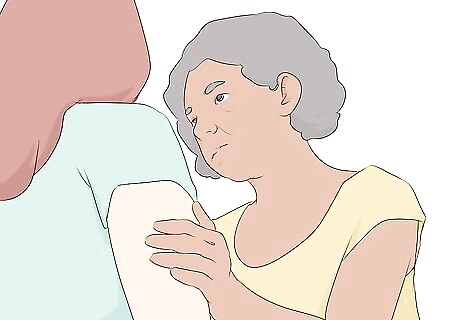
Prepare yourself for the most common reactions. Even the people who love you the very most can sometimes struggle with how to respond in situations like this, and they may be trying to process their own emotions as they discuss your diagnosis with you. Their responses might not be exactly what you were hoping for, but usually, that’s not because they don’t care or don’t want to help. It’s more likely they just aren’t sure what to say. Some family members may focus on trying to cheer you up, even when you’re talking about strong emotions like fear or sadness. If that’s not what you’re wanting to hear, it might help to say something like “I know you’re trying to help, but I’d really appreciate it if you’d let me be upset right now.” Family members may also want to focus on their own emotions or on their own cancer-related stories. Try not to take this personally; they’re having strong feelings too. You can try to redirect the conversation to your own situation or, if this continues, you can choose to spend more time discussing your diagnosis with other people who are able to be more supportive. Your loved ones may also ask questions you’re not comfortable answering. If that happens, you could try saying something simple like “I’d rather not talk about that right now.”
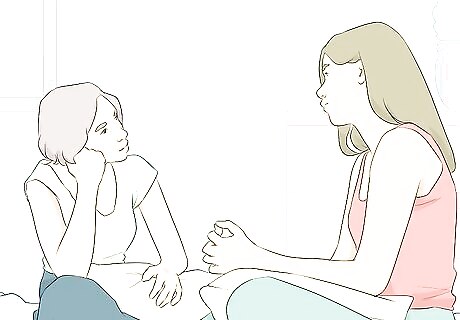
Choose a time when you’re unlikely to be interrupted. Whether you’re breaking the news in person or not, it helps to give yourself enough time to have a full conversation and answer some of your loved ones’ questions. You probably don’t want to be checking the clock every few minutes. If you’re having the conversation in person, pick a place that’s relatively free of distractions. You want to be able to focus on the topic at hand, and you want your family to be able to do the same.
Discussing Your Diagnosis
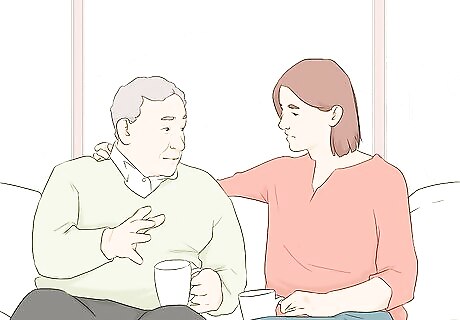
Share only what you’re comfortable sharing. You don’t have to give your family all of the details about your symptoms, diagnosis, prognosis, or treatment plan unless you want to. It’s fine to start with something basic and straightforward like “I just found out last week that I have prostate cancer. I’m still working with my doctors to figure out what the treatment plan will look like, but I wanted to let you know what’s going on.”

Don’t put too much pressure on yourself to seem brave or optimistic. You’re dealing with a scary health concern, and how you feel is how you feel -- you shouldn’t have to put on a happy face to talk to your loved ones about your situation. Some people feel like they have to protect their families by focusing on the positive and minimizing any negative feelings or fears, but this is truly one of those moments where you don’t need to pretend you’ve got everything under control. It’s okay to be honest.
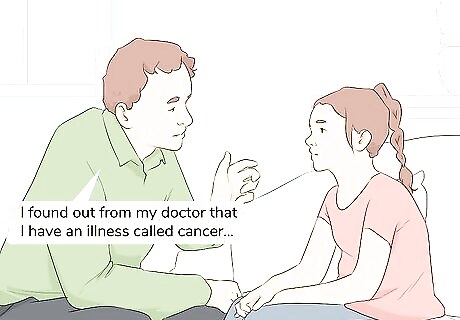
Use simple, age-appropriate language if you’re telling children. You might be concerned that your diagnosis will be too upsetting for children to handle, but in general, it’s better to let them know what’s going on. This does take a little extra effort, though, as you’ll want to make sure they understand what’s going on. While adults may understand the basics of what cancer is and what treatment might look like, children may not. Children may also be confused about whether your illness is contagious. Depending on the age of the children in question, you might want to say something like “I found out from my doctor that I have an illness called cancer. I’m going to have lots of doctor’s appointments coming up to deal with it, and I’ll probably be feeling pretty sick for awhile. It’s not like a cold or the flu, though, so you can’t catch it from me.” If these are your own children you’re talking to, it may also help to reassure them that they’ll be okay and their routines will stay relatively normal. If you’ll be having friends or relatives help to care for them during your treatment, you can explain how that might work.
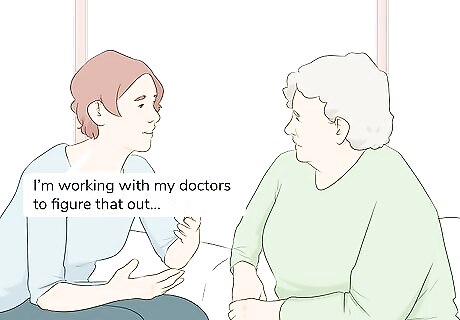
Answer the questions you feel comfortable answering. Different people handle these kinds of situations differently, but your family will probably have questions about your prognosis. They may also want to know more about your specific diagnosis and your treatment plan. If you’re able, try to answer these questions directly. When you’re not sure, it’s completely fine to just say “I don’t know” or “I’m working with my doctors to figure that out.” If the questions start to pile up and feel overwhelming, don’t feel bad about suggesting a follow-up conversation a day or two later. You can also suggest that your family members do some outside reading on their own.

Try not to worry if family members don’t react the way you hoped at first. Even if you’ve prepared yourself for less than ideal responses, they can still sting. It may help to remind yourself that your family likely means well. They are probably feeling many of the same emotions that you’ve been feeling, like anger, sadness, and fear, and it may take them some time to adjust.
Getting Support

Ask for the help you need. An excellent way to wrap up the discussion with your family would be to ask for support. You may already know some things they could do to help, like providing transportation to doctor’s appointments or pitching in with housework or child care. Don’t feel guilty about asking for those things -- if anything, your loved ones may be relieved to realize there are concrete things they can do to help. If you’re not sure yet what you’ll need or when, you could just say something like “I know this is going to be a difficult time. I’m sure I’ll need help, and I’d really appreciate your support.”

Consider putting someone in charge of sharing your updates with others. You may not want to reach out to every friend and relative with the news of your diagnosis, and you may not feel up to keeping all of those people posted with updates on your treatment. A close relative or friend could coordinate this for you.

Remember to tend to your emotional needs as well. It’s wonderful to have friends and family who drop off meals, drive you to appointments, or pick up your kids from school, but sometimes what you need most is a shoulder to cry on. It’s okay to ask for this. Pick someone who’s been especially supportive and say something like, “I’m just so overwhelmed right now. Could we get together soon? I really need to vent for half an hour and have someone give me a hug.” If, on the other hand, you’d prefer a distraction, it’s also fine to ask for that! It’s completely understandable that you might just want to do something fun or relaxing, so consider asking friends or family members to keep you company for a movie or game night.
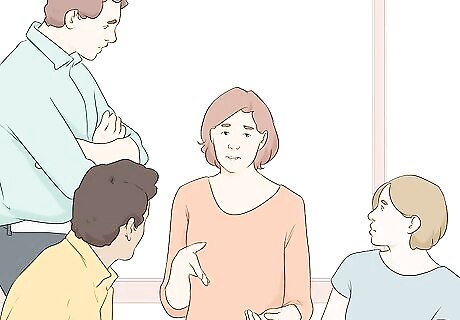
Look for help outside your close circles as well. Cancer diagnosis and treatment can feel like a long haul, and not everyone has a family full of consistently supportive people who are eager to help. If you need more, there are many resources available. Check to see if there are support groups in your area for people with cancer. It can be incredibly helpful to connect with other people who are dealing with similar issues. Your treatment team may have more information for you about these. Online support groups can be a wonderful source of comfort and commiseration as well. Organizations like the American Cancer Society can connect you to these groups.




















Comments
0 comment